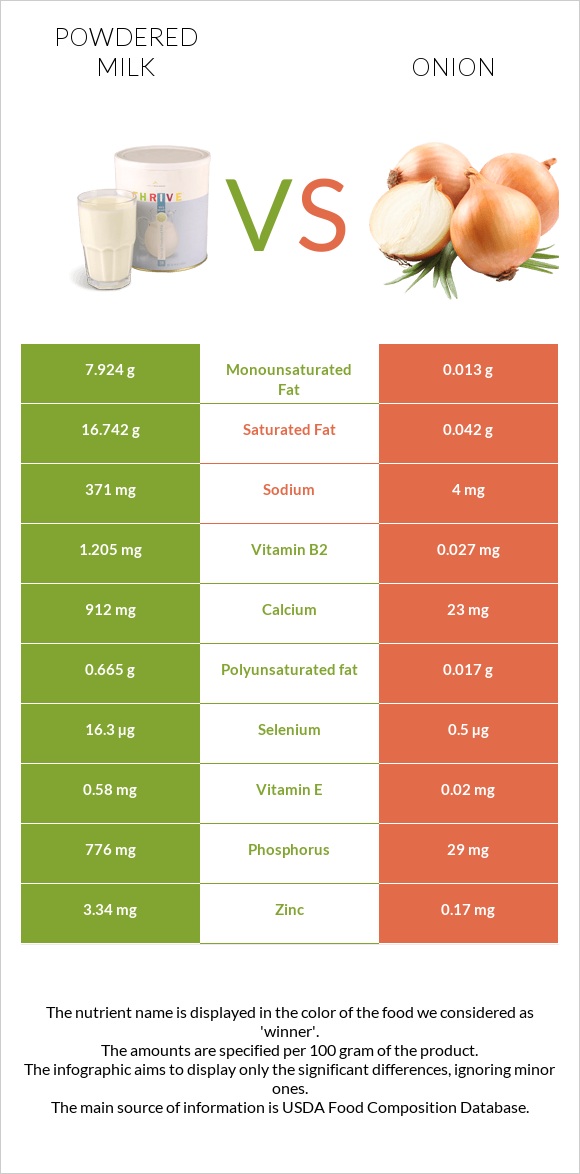
Powdered milk vs. Onion — InDepth Nutrition Comparison
The main difference between granulated onion and onion powder lies in their texture, concentration, and, consequently, their specific uses in our everyday cooking. Compared to granulated onion, onion powder has a more concentrated flavor thanks to its finer texture. This gives it a slight edge when it comes to whisking into liquids or blending.
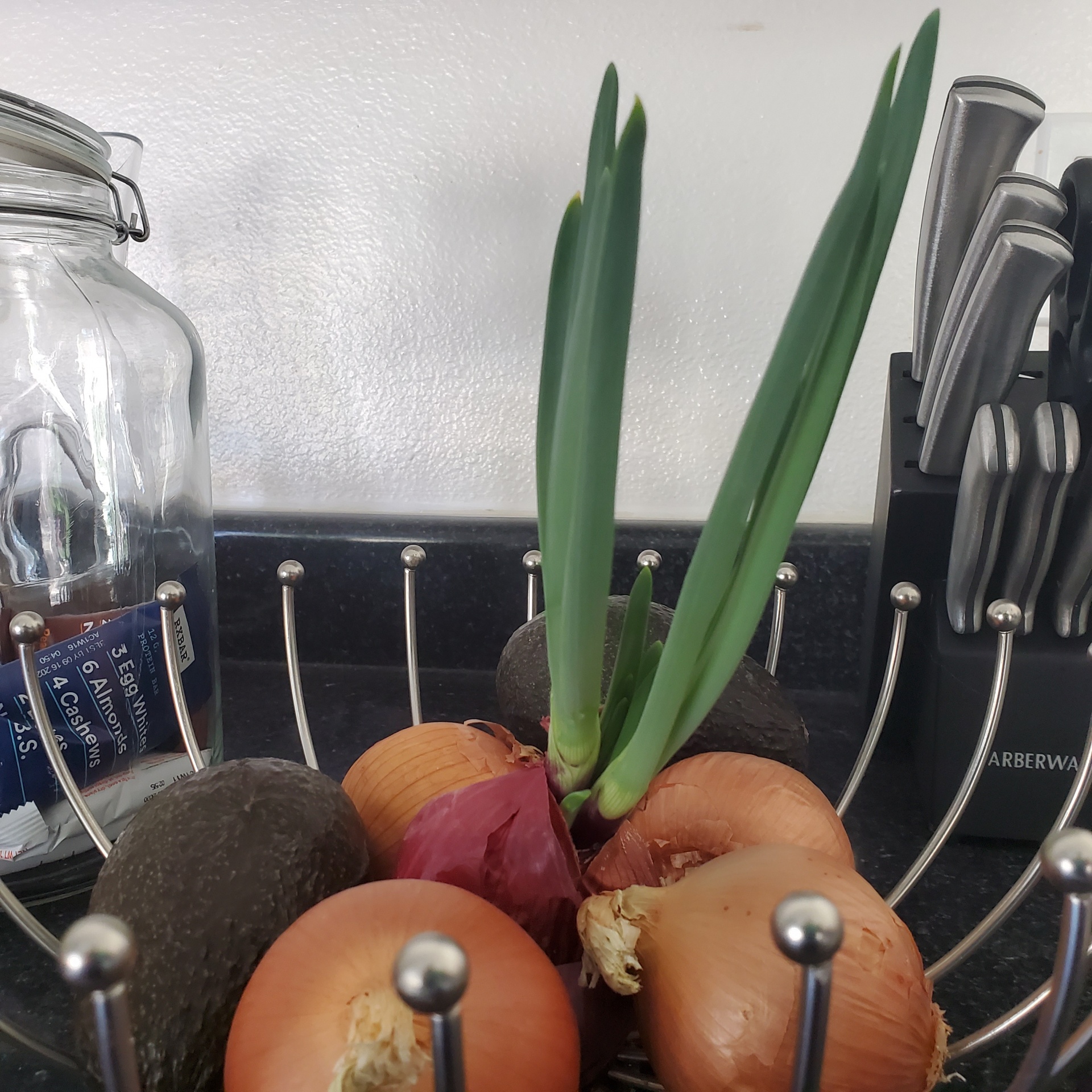
Growth Of Red Onion Free Stock Photo Public Domain Pictures
It is true that smaller chunks of onion have a larger cut than larger chunks of granulated onion, but that fresh, chopped onions have a smaller cut. A tablespoon of dried minced onion should be used in place of 1/4 cup of raw onion. For one medium onion, substitute one tablespoon of onion powder.
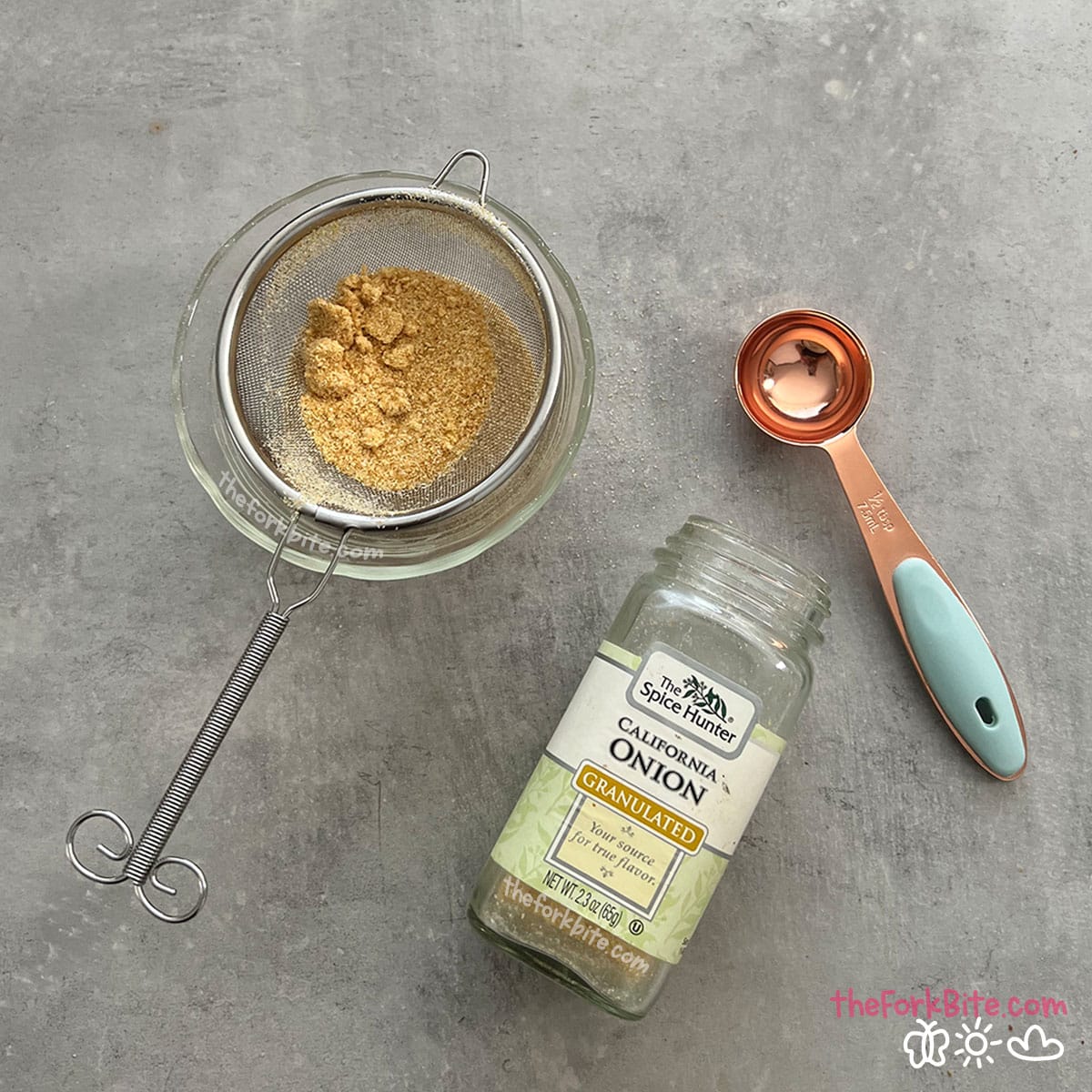
Granulated Onion vs Onion Powder The Fork Bite
Dehydrated vs. Flakes vs. Granulated vs. Powdered Onion . Dehydrated, freeze-dried, vacuum shelf-dried, or flow-dried onions are solid forms of shriveled, mince-size cuts of onion that you can reconstitute in your cooking. Some are irradiated to protect from microbial contamination, but not everyone sees that as a plus.

Substitutes for Fresh Chopped Onions in Recipes Cooking substitutions
Granulated Onion vs Onion Powder: Uses. Onion powder is generally the more versatile of the two - its great used in both textured dishes and broths. However, granulated onion may be preferable in certain dishes precisely for it's texture - the same goes for minced onions and onion flakes, though they aren't used in exactly the same way.
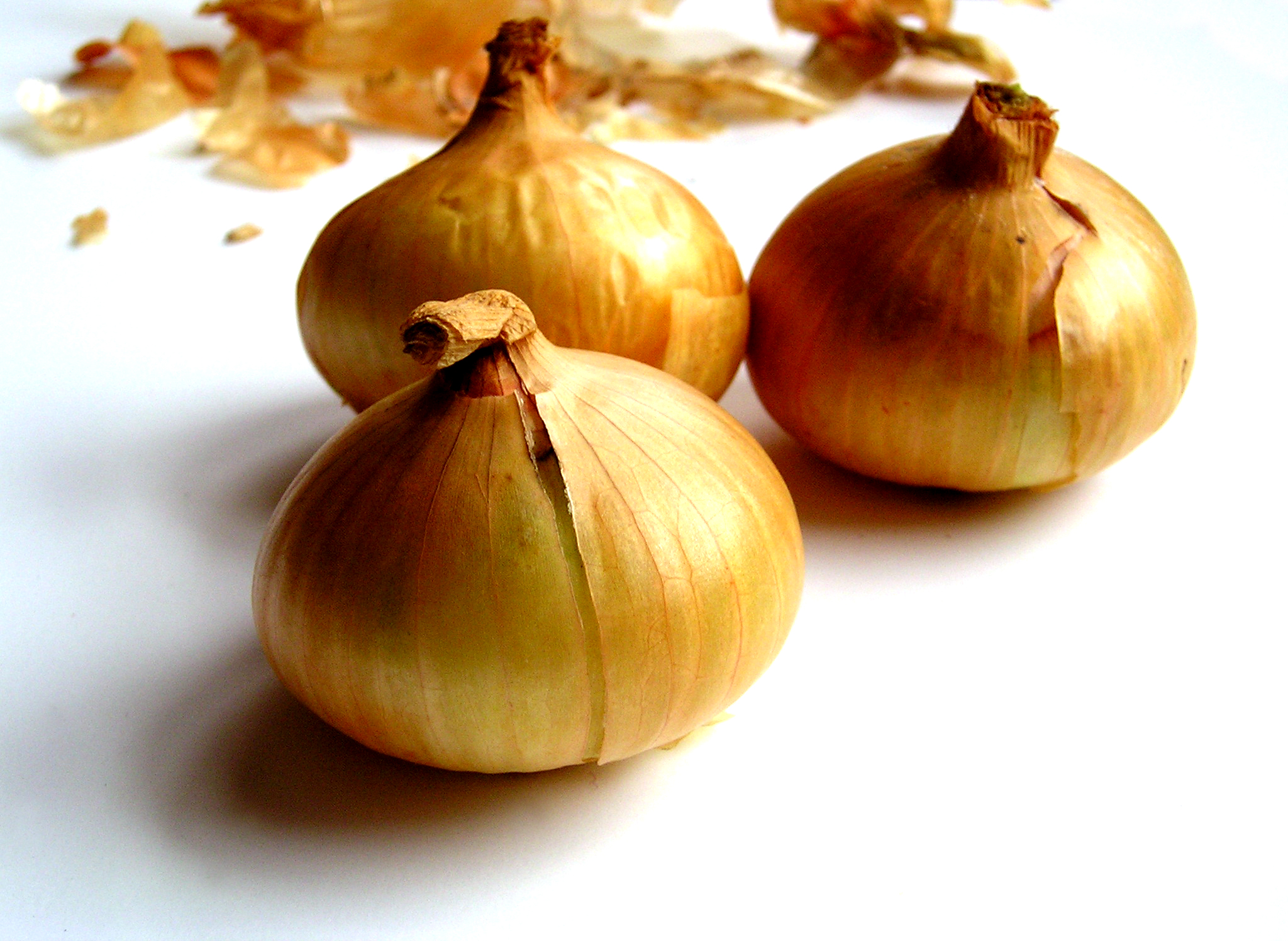
Onion (Powdered) The Paleo Mom
Granulated onion and onion powder come from the same original product, of course: the onion. However, these two distinct products differ in the size of the grind used to make the final product. Granulated onion is a coarser, larger onion product, while onion powder is a very fine dust. Granulated onion is a very small, flaky onion product.
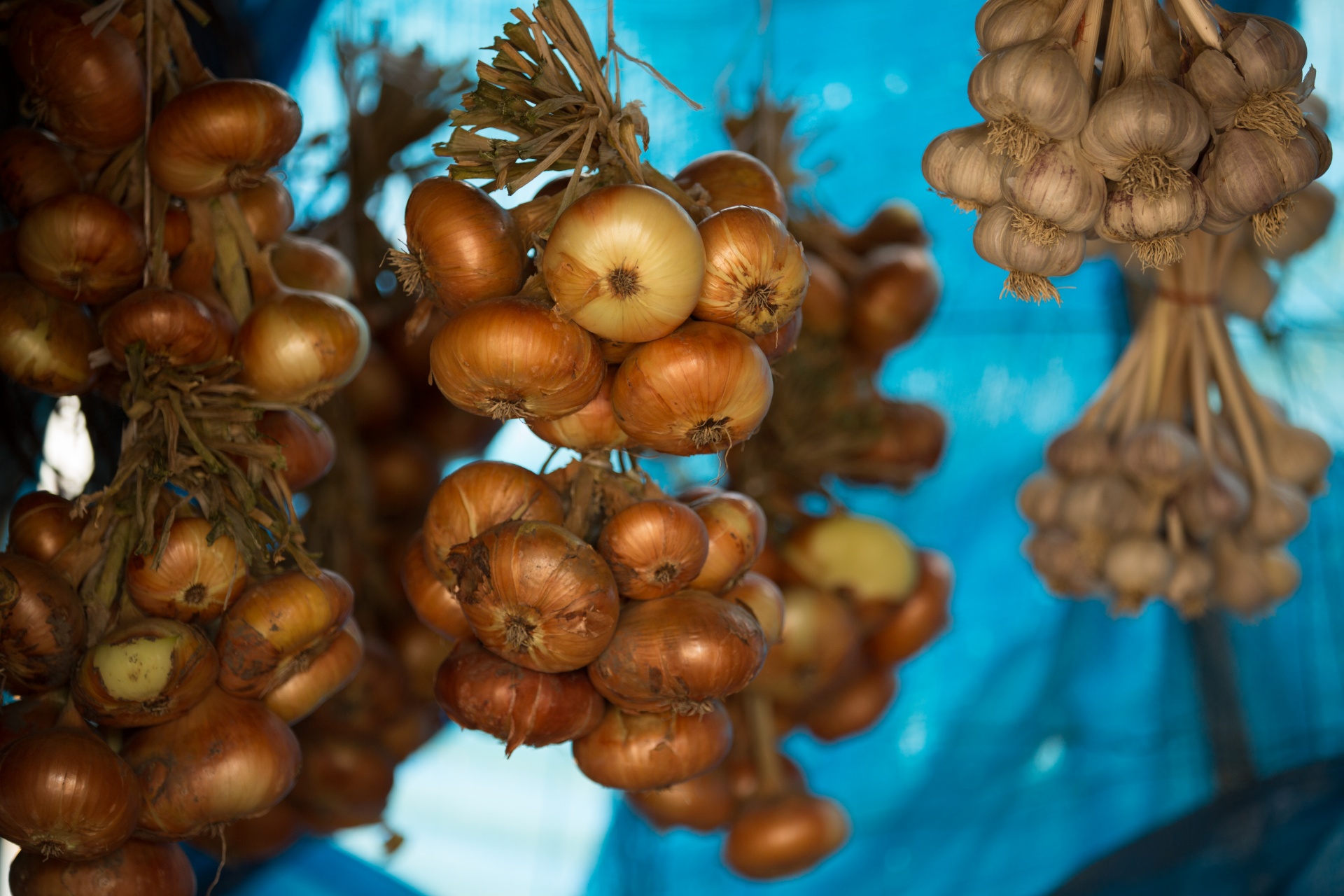
Onion And Garlic Free Stock Photo Public Domain Pictures
Granulated onion is a common ingredient found in many kitchens around the world. It is essentially dried, ground onion that has been processed into small, granular particles. This makes it easy to incorporate into recipes and adds a rich, onion flavor without the need for fresh onions. It can be an excellent alternative for those who want the.
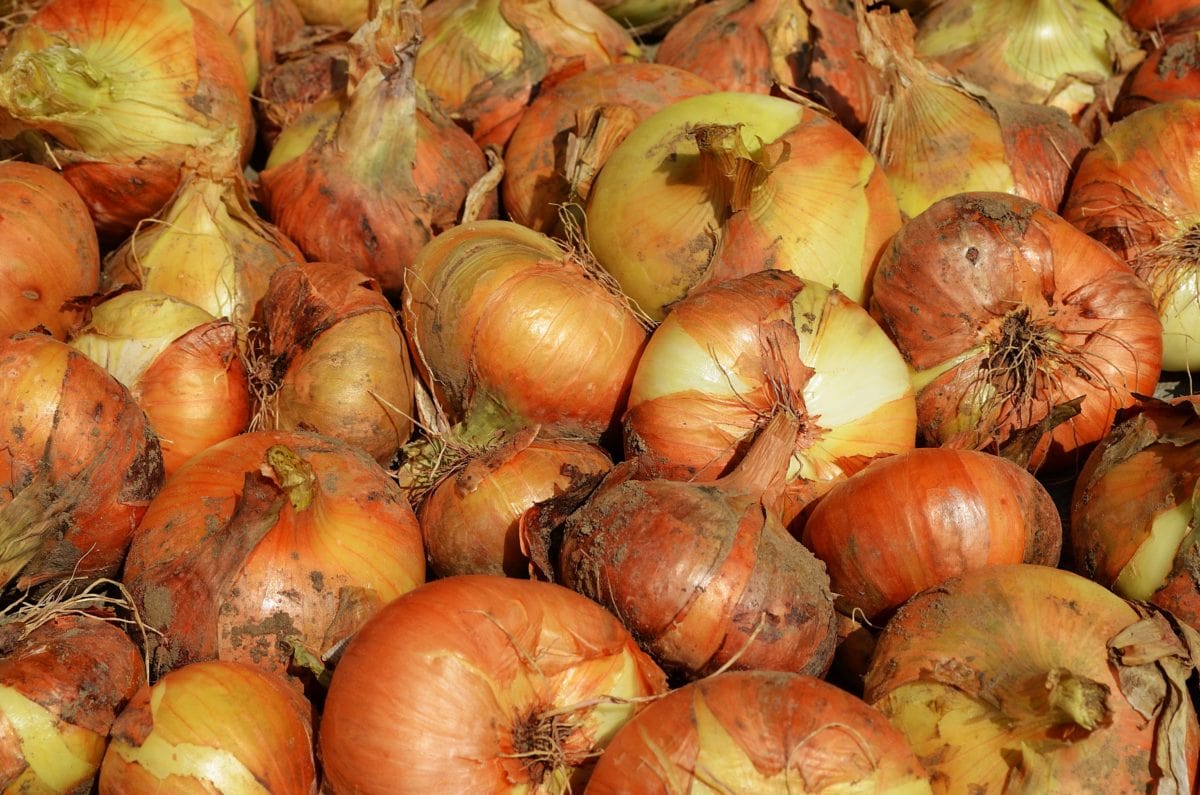
Free picture onion, nutrition, vegetable, fruit, organic, antioxidant
Granulated onion is made from coarsely ground onions, while onion powder is finely ground. This difference in texture can affect the final outcome of a dish. Granulated onion is often used as a seasoning in dry rubs, marinades, and salad dressings. Its coarse texture adds a bit of crunch and texture to dishes, and it also releases its flavor.

Granulated Onion vs Onion Powder Differences, Uses & Substituting
Granulated onion is made by drying onions and then grinding them into granules. The granules are larger than onion powder, which gives it a coarser texture. It has a sweeter flavor than onion powder and adds a bit of texture to dishes. Granulated onion can be used in a variety of dishes, including soups, stews, marinades, and sauces.

Free Images white, food, harvest, ingredient, garlic, produce
Here's how to swap various types of onion seasonings for fresh onion: 1 teaspoon of granulated = 1/2 cup of chopped fresh onions. 1 teaspoon onion powder = 1 small onion or 1/4 cup of fresh chopped onion. 1 tablespoon of onion powder = 3/4 cup of fresh onions. 1 teaspoon of granulated onion = 3/4 teaspoon of onion powder.
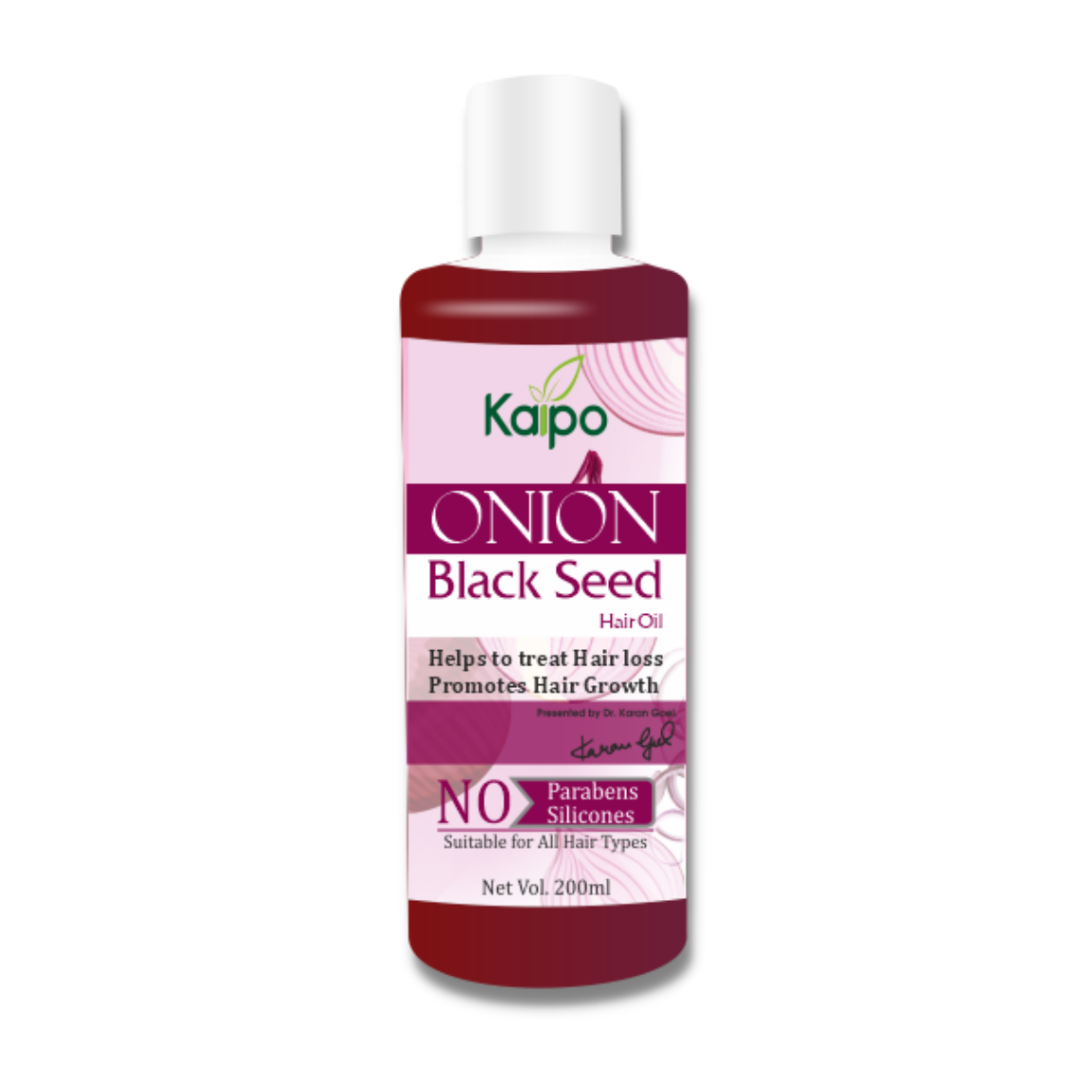
Keva Kaipo Industries Pvt. Ltd.
Onions contain saponins that have antifungal properties. In comparison, the saponin in onion powder is insignificant (2). Onions are richer in vitamin C and B complex vitamins since they are not destroyed. (Although the diagrams show that onion powder is richer, consider the comparison between onions which are 90% water vs. onion powder).

Can You Put Powdered Sugar in Espresso? Candy Brewing Ideas! the
Here are some more things to keep in mind about granulated onion vs onion powder: Granulated onion has a more sharp and pungent flavor, while onion powder is more mellow and sweet. Granulated onion is best used as a savory component in dishes like stews, soups, and sauces. Onion powder is more versatile and suitable for savory and sweet dishes.
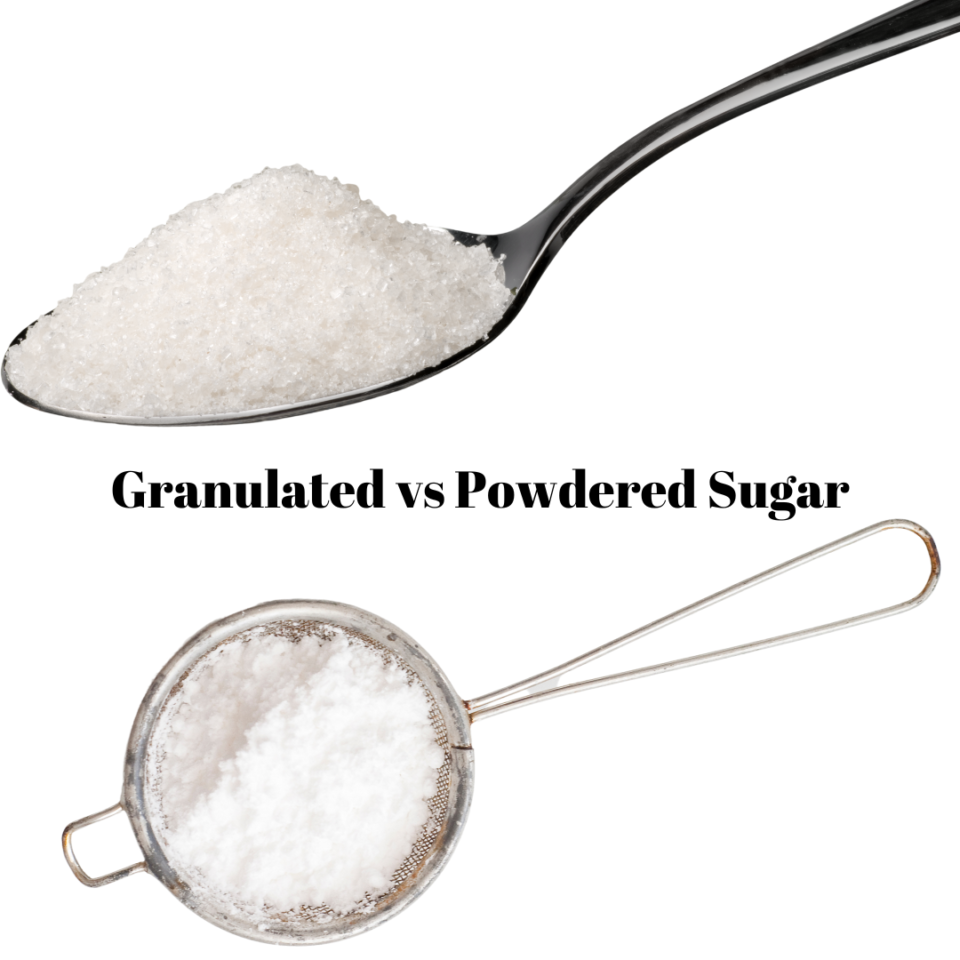
Powdered Sugar in Coffee The Sweet Way to Start Your Day
Onion powder has had most of its moisture removed, which inhibits the growth of microbes that cause food to spoil. As a result, its shelf life is a lot longer than the shelf life of fresh onions. Fresh onions are 89 percent water. Onion powder can last for up to four years in a sealed container. At the most, fresh onions can last for up to six.

Free Images natural foods, yellow onion, shallot, local food
Granulated onion has a granular texture, while onion powder has a powdery texture. This difference in texture affects how the two products are used in recipes. Granulated onion is often used in recipes where it is essential to have a visible onion texture, such as in meatloaf or stuffing.

Compare Granulated vs. Superfine Sugar YouTube
Because onion powder is finely grounded to a dust-like form. On the other hand, onion granules are grounded coarsely. And the particle size is not dust-like. Rather the particles are bigger and irregularly grounded. The size of the particles of the onion powder and granules makes a huge difference while cooking.
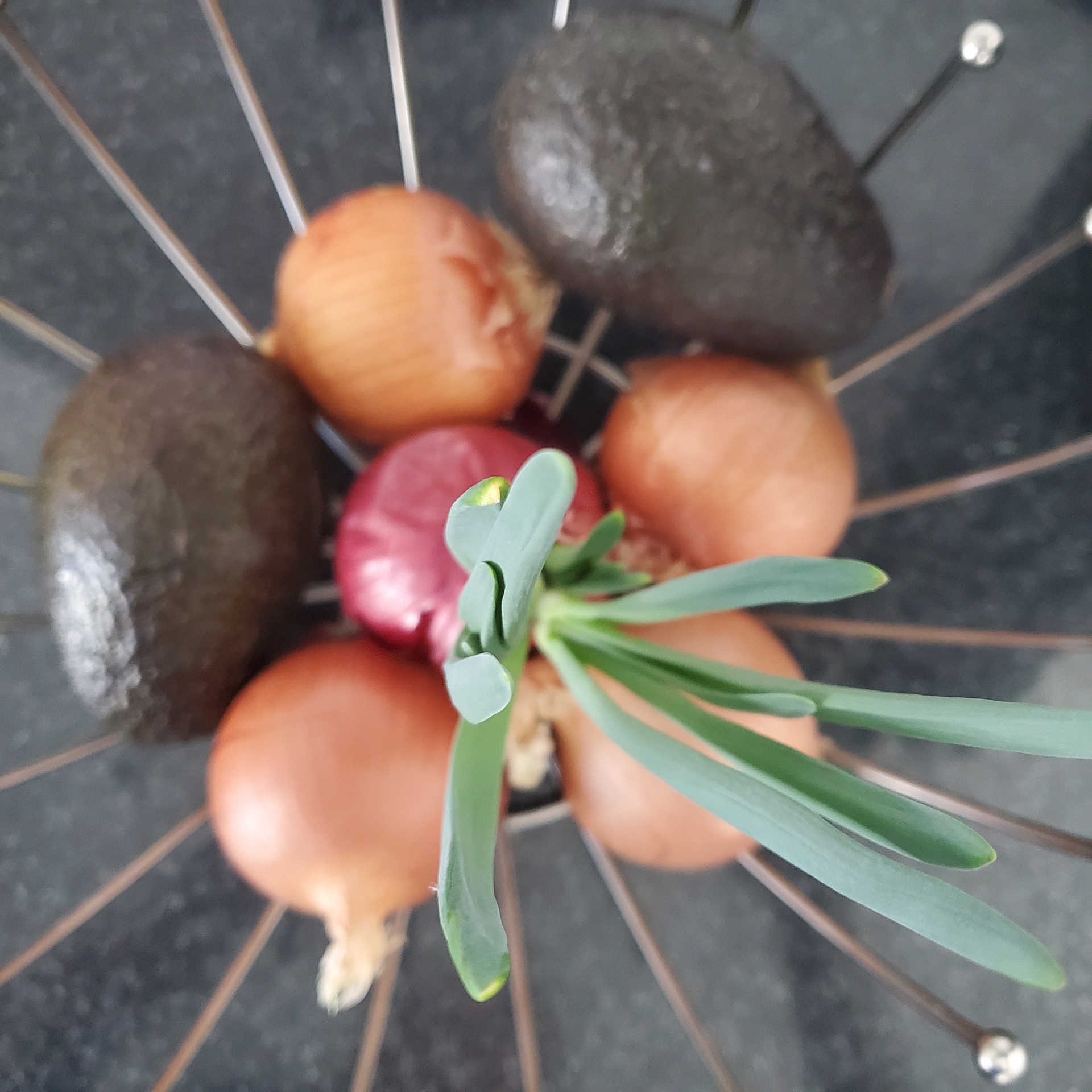
Growth Of Red Onion Free Stock Photo Public Domain Pictures
Onion powders are smoother than onion granules and contain a finer grind. The onion granule's particle size, on the other hand, is greater than that of the onion powder. Because onion dust has been finely ground to a powder-like form. While onion granules are crushed coarsely. The particle size is not like dust.
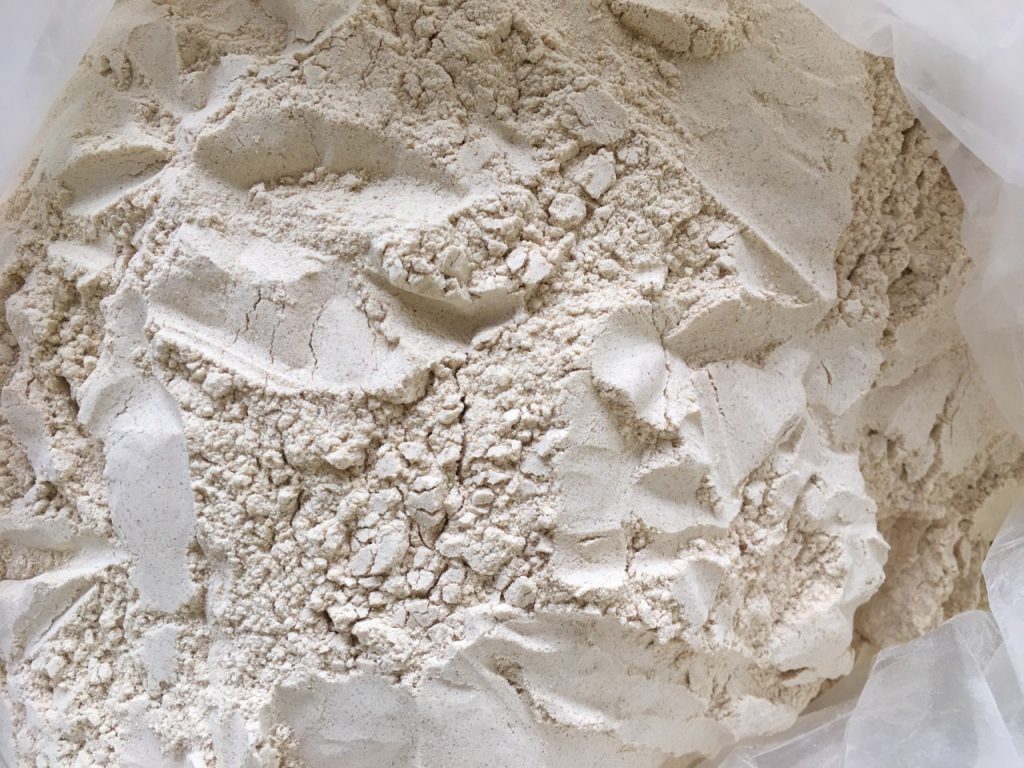
GRANULATED ONION BEST PRICE VIETNAM ONION POWDER
Shallots, Granulated Toasted Onion, Scallions, Garlic Salt, and other onion-based seasonings are solid swaps. Depending on the recipe, fennel bulbs, celery, and fresh onions can sub in too. However, more of the vegetables will be needed to achieve a similar flavor. Remember, ½ cup fresh onion is equal to 1 Tbsp. of spice.